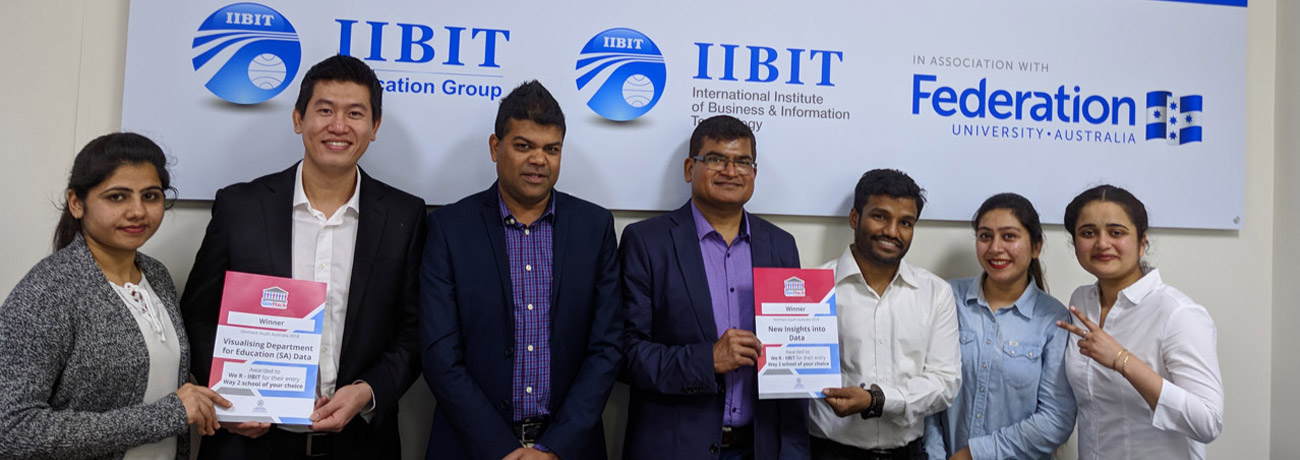

Students must be over 18 years of age.
Students must have completed Australian Year 12 or an overseas equivalent or an Australian Qualifications Framework (AQF) or higher qualification prior to commencing this course.
Have sound language, literacy and numeracy skills in order to undertake this course (Contact IIBIT for a LLN test).
English language requirements for international students:
Students must also meet IIBIT’s standards for English Proficiency. In order to demonstrate possession of adequate English language proficiency, students must provide valid evidence of attainment of at least one of the following:
Academic IELTS (International English Language Testing System) overall band score: 5.5
TOEFL iBT (Test of English as a Foreign Language Internet-Based test) test score band: 46
PTE Academic (Pearson Test of English) test score band: 42
CAE (Cambridge English Advanced) test score band: 47
OET (Occupational English Test) test score band: Pass
TOEFL PBT (Test of English as a Foreign Language Paper-Based Test) test score band: 527
Overseas students who are unable to meet any of the above English language proficiency requirements may undertake further study on a NEAS-approved course of English for Academic Purposes designed to raise students' English proficiency to an equivalent level to IELTS 5.5. Production of proof of successful completion of such a course will be accepted by IIBIT as meeting the English language proficiency admission requirement. For students who do not have an IELTS Test score or equivalent test score, they can take an English Placement Test to assess whether their English level can meet the requirements of entry into the Diploma course.
This qualification reflects the role of individuals in a variety of information and communications technology (ICT) roles who have significant experience in specialist technical skills, or managerial business and people management skills. Individuals in these roles carry out complex tasks in a specialist field, working independently, leading a team or a strategic direction of a business.
Teaching And Assessment Methods
Teaching methods focus on classroom-based face-to-face training, which includes lectures and practical tutorials. Classes are small in size and lecturers focus on individual student needs during the learning process. The emphasis in assessment is on a collection of evidence, holistic assessment against the unit of competency, and trainer/assessor judgment. Importance is placed on the integration of areas of theoretical knowledge, practical skills, and proper work attitudes. The following assessment methods are used: Written and oral quizzes; Simulated workplace activities/scenarios/role plays; Projects/assignments/presentations; Classroom activities.
Learning and assessment generally take place in an integrated classroom and simulated workplace environment. We aim to equip our graduates with the necessary skills and knowledge to enable them to successfully satisfy the demands of the workplace.
Pathways From The Qualification
Participants may be eligible to undertake further qualifications at Graduate Diploma level or other higher education sector qualifications
Course Outcomes
Upon successful completion of this qualification student will be eligible to gain employment within the IT sector. Employment opportunities may include: Data Analytics; Data Scientist; Business development manager; ICT infrastructure solutions manager; Knowledge manager; Enterprise systems administrator; ICT administrator/ coordinator.
Level of Study: Advanced Diploma
Duration: 104 weeks
CRICOS Course Code: 105061C
English Requirements: IELTS Score UG 6
Annual Tuition: AUD$8,500.00
Disclaimer: The listings provided on the StudyAdelaide.com website are for information and promotional purposes only. The information, content and material provided in the listings is the sole responsibility of each education provider. While every care has been taken in preparing the information published on this website, StudyAdelaide does not guarantee the accuracy or currency of the content.